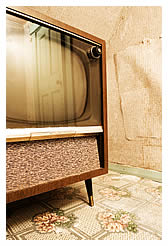
"[1968] shows are infinitely superior in almost every way to the shows of the same type that were popular in years past."


"[1968] shows are infinitely superior in almost every way to the shows of the same type that were popular in years past."
By Reno Bailey
WBTV Publicity Director
(Special To The Weekender)
Sunday, Jan. 7, 1968
"This is the worst TV season ever. I remember back when TV was really great. . ."
It's a quote you hear often. The speaker trails off into golden memories of yesteryear when the world was young, when it was a joy to watch the tube. It was a time when you went to work in the morning, and the first thing you heard was, "Hey, did you watch...last night?"
What did you watch last night? Did you see "Beat the Clock" with Bud Collier? Wasn't it terrific when he had the contestant hit her husband in the face with a pie, and the balloon filled with water hit her on the head?
 |
| Reno Bailey |
Or how about the Bob Cummings show? Bob decided that he was not, after all, tired of lovely girls. What a gas that was.
Did you watch "It's Always Jan," starring Janis Paige. It's an hilarious situation comedy, and last night's episode was all about a bachelor physician who decides Jan is just what the doctor ordered. Stimulating!
How about "December Bride," did you watch that? Or "Cavalcade Theater," or "Fairbanks Presents," or "Waterfront," or "Sgt. Preston (of the Yukon)" or "Masquerade Party?"
Of course you didn't. The fact is, these were programs that aired on the week of February 19, 1956, less than a dozen years ago. They were all broadcast on WBTV. It was programs like these that made up the bulk of television schedules, on all networks, back in the "good old days."
Of, course, there was "Omnibus," "Studio One," "See It Now" and several other series of exceptional quality, just as today there is "CBS Reports," "21st Century," "CBS Playhouse," specials like "Mark Twain Tonight" and other such programs, carried by WBTV and other stations.
But then, as today, such so-called "cultural" programs were the exception. Viewers with a memory are always bemoaning the lack of live drama:. It is an unfortunate fact: of life that live drama on television declined in direct proportion to the decrease of viewer interest. What was live drama? It was a performance with all the mistakes left in: the fluffed lines, the hairy arm of a stage hand interrupting your intense interest. Before the invention of the video tape recorder there were plays much like "The Crucible" or "Do Not Go Gentle Into That Good Night," which were aired recently on Channel 3, but generally they were not nearly so well executed, technically or artistically.
Then there were the filmed dramas, "teleplays" they were called. These were ground out in Hollywood like so many sausages, with about as much regard for their content and production values. What filmed series of that time would compare favorably with a "Mission: Impossible," a "Mannix" or "A Wild Wild West" - to name a few.
The mind remembers only what it wants to remember. The viewer of today would not sit still to watch what he watched a dozen years ago. He is used to—and gets—a whole lot better.
Those programs on today's schedule which intellectuals claim they do not watch are usually the programs with the highest ratings. They are spoken of derisively and are said to appeal to the "lowest common denominator." Actually, they appeal to the widest, not the lowest, common denominator. Moreover, these shows are infinitely superior in almost every way to the shows of the same type that were popular in years past. The fact that they entertain, by the way, does not dilute their value to the viewer, whose perfect right it is to be entertained.
Another contrast to yesterday is today's amount of informational programming. In the early years, Channel 3 broadcast about 45 minutes of news each weekday, including that of network origination. On a typical weekday in 1967, a viewer can see as much as two hours of news, not including interview segments, documentaries or coverage of special events. And the quality and depth of news reporting has been vastly improved.
As for sports on television, today's viewer has a greater choice of better sports events, presented more frequently than ever before.
In the past couple of years, the viewer has shown great acceptance to "big" prime time movies. When, in "the good old days," was he able to watch—in a three-month period—on one network, such a lineup as "The Great Escape," "Days of Wine and Roses," "The Yellow Rolls Royce," "North by Northwest," "Cat on a Hot Tin Roof," "The Apartment," "The Defiant Ones" and many others.
When you've met a man who says "This is the worst TV season ever," you've met a man (not necessarily a viewer) who takes television for granted, and—furthermore— one who does not accurately recall those "good old days."